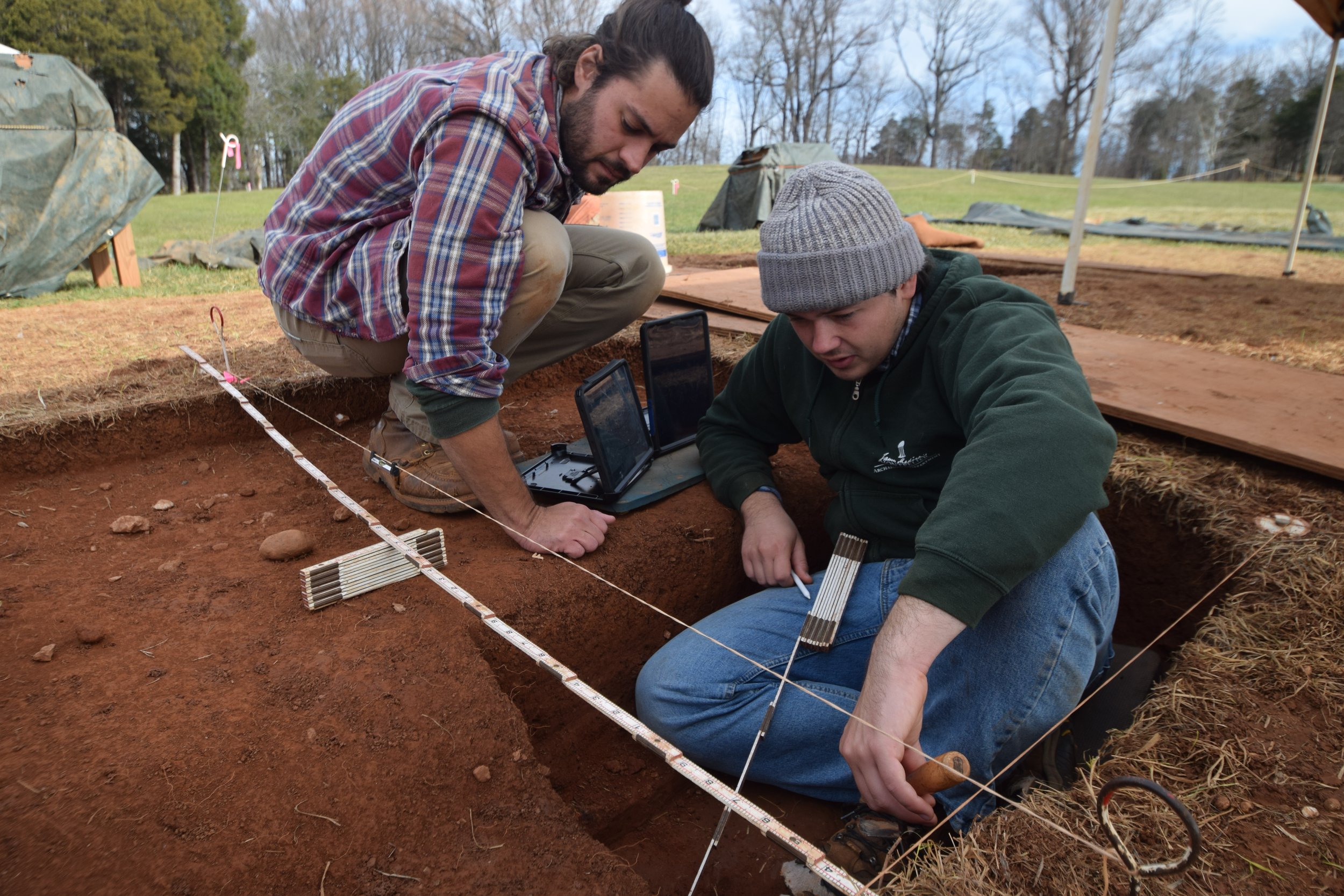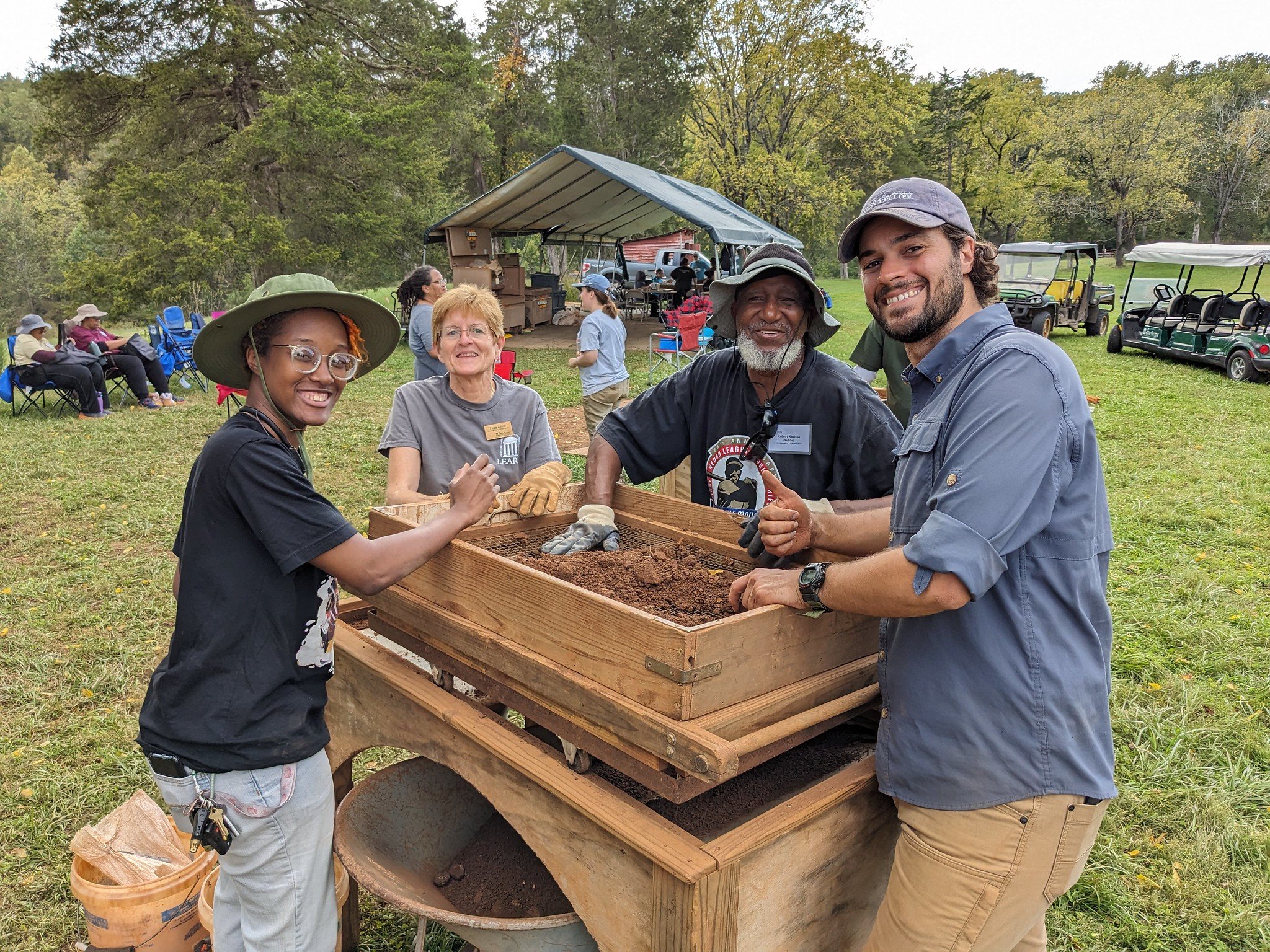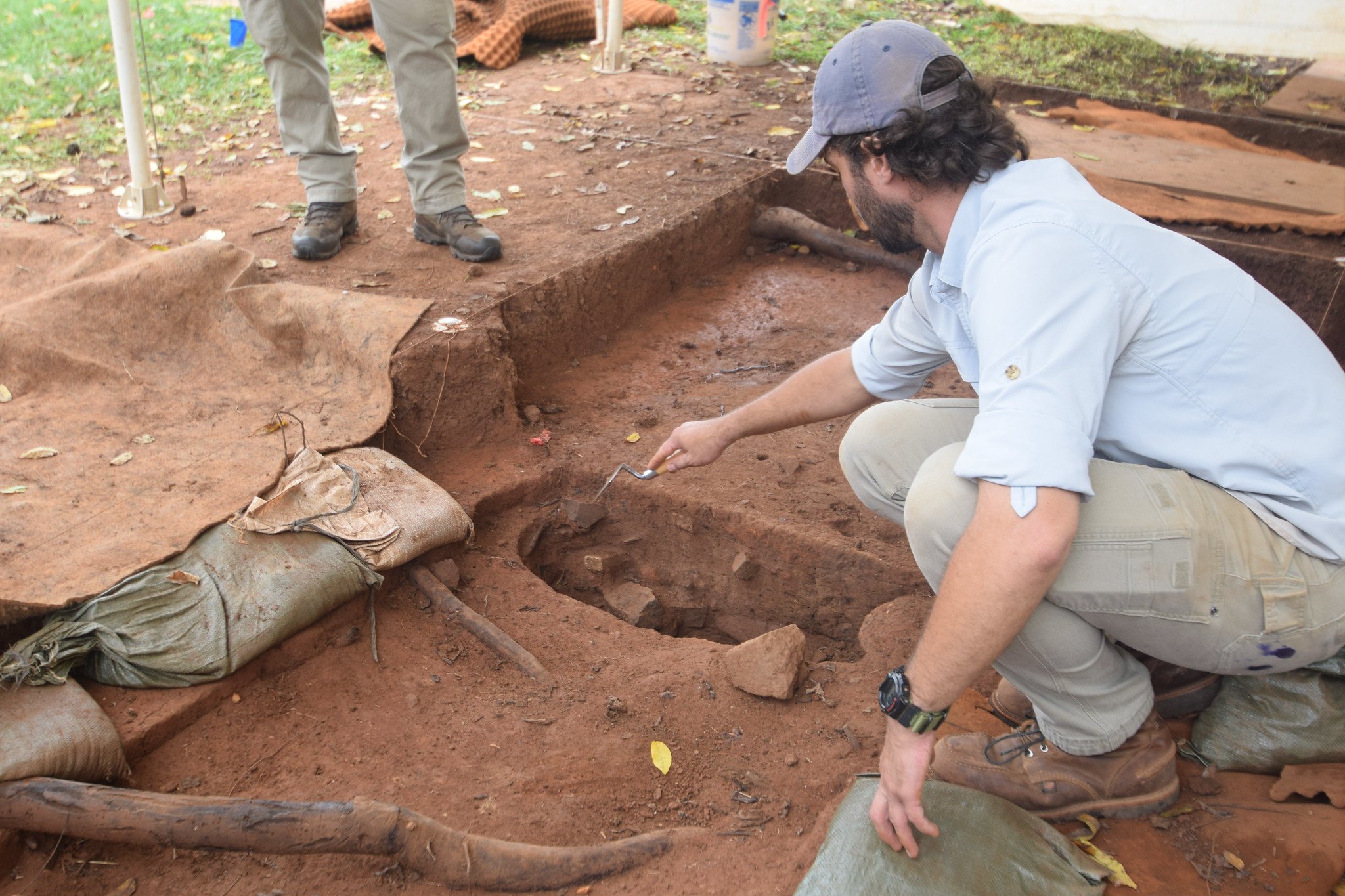Archaeology Month 2023 - Q&A with Christopher Pasch
What is your job title and responsibilities?
I am the Field Director with the Archaeology Department at James Madison’s Montpelier, a plantation and house museum located in Orange County, Virginia. Montpelier was a 5,000 acre plantation owned by the fourth President of the United States, James Madison, and was home to over two hundred enslaved Americans. In many ways my job is two fold. In its most basic form, my job is to manage project strategy and supervise the day-to-day of archaeological surveys and excavations at Montpelier. However, central to my job is teaching and public engagement. This includes managing the scheduling and logistics of our bi-weekly public excavation programs, teaching archaeological field methods to our annual field school students, mentoring and training entry level professionals completing our internship programs, and engaging with the public online.
What does archaeology mean to you?
Archaeology is more than the study of cool artifacts or old buildings. Archaeology is about understanding how people, places, things, and time are all entangled. Archaeology has the power to tell real stories about how we live(d) and understand who we are through the study of our bodies, personal possessions, our homes and so much more. As such, archaeology is linked deeply to memory, especially how and what we remember and/or forget. In that way archaeology has the power to re-remember and reconstitute the lives of those long forgotten or erased.
Why did you decide to join the field of archaeology?
From a young age I have always been interested in history and museums. Unlike many archaeologists, who typically major in Anthropology–with a focus in material culture, I completed my baccalaureate in History and English Literature. However, throughout my undergraduate years I was particularly interested in the intersection of literature, art, cultural history, memory, and the built landscape. While in college I worked as a costumed interpreter at Historic St. Mary’s City, a living history museum which has been undergoing reconstruction based on archaeological excavations and research. While working there, I observed the museum’s annual archaeology field school each summer. Before my senior year I decided to try out the Field School there. I immediately fell in love with everything about the process of excavation: working with my hands, working outdoors, meticulously excavating and recording deposits, and of course the unparalleled experience of holding an object that was last held by someone hundreds–sometimes thousands–of years ago. Working in museums also affords the opportunity to educate and share that experience with members of the public, including: visitors, volunteers, and public archaeology participants. This is particularly rewarding and powerful when excavating alongside members of the public whose ancestors once lived or worked at the sites we are exploring.
What would you say is your biggest professional accomplishment or the biggest professional challenge you've faced?
I have been honored to work at Montpelier over the past six years, which has had a long history of collaborative engagement with descendants of the enslaved who lived and worked at Montpelier. I have had the opportunity to see the power of community based archaeology and collaborative storytelling in how places of trauma, such as plantations, can be recreated as spaces of restorative justice and community healing. The greatest accomplishment of my tenure here, has been working side by side with the Montpelier Descendants Committee in the years between 2020 and 2022 in their pursuit of achieving structural parity with The Montpelier Foundation’s Board of Directors. This however, was also the greatest challenge of my career, as the wishes of the descendant community and the professional ethics of archaeology did not align with the policies of the museum’s leadership.
What words of wisdom would you like to share with the next generations of professionals seeking to work in your field?
Archaeology is a very attractive profession, and many archaeologists can tend to build their entire identities around being an archaeologist. Archaeology benefits by having an endless curiosity, which can often lead to a drive to spend all of our free time doing research to better understand that which we encounter at work. Research, writing papers and/or blog posts, going to conferences, community work, lobbying or advocating for the preservation of cultural heritage, and other professional engagements can expand beyond our daily job duties, and often leave little time for cultivating other aspects of our identity. I would advise the next generation of archaeologist to not feel guilty about having and nurturing a life outside of archaeology. I am still learning how to do this, after spending a decade entirely focused on archaeology.
Fun Question: What has been your coolest find since starting this field?
This is one of the most difficult questions I get asked by museum visitors who stop by our excavation site(s). I was very lucky in my first two years as a professional archaeologist to work on a late 17th century house site. I was able to cut my teeth excavating on many complex archaeological features, including: large structural post holes, a brick lined cellar filled in with early 18th century trash, and large indigenous pit feature with tools and processed clay.




